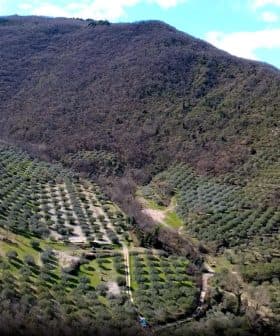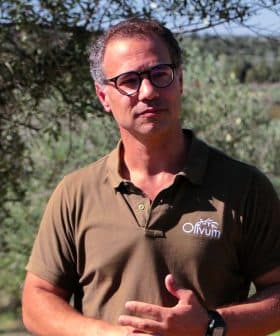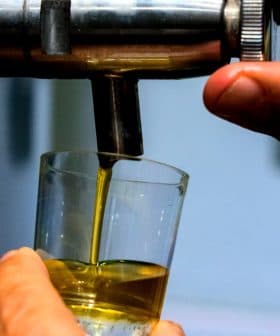Reimagining Olive Oil for Millennials
Olive oil has been used for generations, but two brands are interpreting the food for young buyers looking to purchase simple, honest products in and out of the kitchen.
Millennials are quickly becoming a significant consumer group with the most global spending power, leading businesses to adapt to their different spending habits. Olive oil producers are targeting millennials by creating eco-friendly products and rebranding to appeal to this demographic, focusing on sustainability and minimalism in their products to attract millennial consumers.
Millennials, widely defined as people born between 1981 and 1996, are rapidly becoming a larger and more important bloc of consumers in the United States and around the rest of the world.
The World Data Lab forecasts that millennials will soon have the most global spending power of any previous generation. In general, millennials differ in the ways in which they choose to spend their incomes. This has led to vastly different spending habits than in previous generations and has caused businesses to adapt.
Olive oil producers and sellers are no exception. From creating eco-friendly health products made from olive oil to rebranding in order to attract new demographics, producers and sellers are seeking ways to get the attention of millennials and their wallets.
When I thought about my future, I wanted to do something innovative and outside-of-the-box. There are so many ways to produce olive oil and not in the ways that have been done for the last 100 years.
“Olives [and olive oil] are ancient but there is still a lot of innovation and a lot of different possibilities,” said Lucrezia Del Papa on the phone from Rome, Italy. Her business, Olivella, creates skincare and beauty products with an emphasis on natural ingredients and environmental consciousness.
Del Papa, who grew up with olive oil for three generations, took her family’s background in trading the product to create a brand targeted at millennials. Olivella does this by focusing on trends in branding that appeal the most to this demographic, such as sustainability and minimalism, turning an everyday food into a must-have in anybody’s beauty arsenal.
“I feel like, for my generation, there is always a question in the middle – am I being good to the environment so I can look good, or because these products can help my community and my future? Do I really believe what I support?” Del Papa asked.
See Also:Sustainability NewsThe answer to this question lies in the way Olivella products are produced, using simple ingredients that do not harm the environment to make genderless products in clean packaging that everybody can feel comfortable using.
“There is a clear evidence that millennials care about the environment,” Del Papa said. “Clear evidence that if there is a product that does right by the environment and is not harmful when compared to a generic product of the same cost, they will choose the more natural option.”
Olivella offers 35 products, from moisturizers to body creams to lip roll-ons, made in Italy with ingredients that are 100 percent natural. One of the most outstanding aspects of the line is that no product has virgin olive oil added later. Rather, the products are made directly from it, along with the by-products created through the refining process. Vegetable oil is also used in place of typical animal fat.
One of the main goals for Del Papa and the brand was to achieve maximum efficiency to adhere to a zero-waste policy. One example is Olivella’s bar soap.
“During the refining process, you have fatty acids and by-products,” Del Papa said. “We analyzed all the properties of the oil and thought of a way to reuse all the olive oil that was going to be wasted or sold in bulk to other companies that would optimize the food production process. So, we developed the bar soap.”
Del Papa is confident that the beauty industry will soon begin to offer more substitutes for less environmentally-conscious ingredients dominating the market today. But for now, Olivella is focused on the strong purchasing power of millennials to buy natural olive-oil based alternatives to their favorite cosmetics.
“When I thought about my future, I wanted to do something innovative and outside-of-the-box,” Del Papa said. “There are so many ways to produce olive oil and not in the ways that have been done for the last 100 years.”
Not only do millennials tend to look for different types of value from their products, but they also show a lesser degree of brand loyalty than previous generations. Olive oil producers have also taken note of this and are designing their products accordingly.
“We found out that nine out of 10 people, especially millennials, did not have a preference for olive oil brands in the United States. They would buy whatever was on the shelf,” Isaac Valdez, CEO of Catalonia Olive Oil Inc, told Olive Oil Times.
The company wanted to create a product that was minimalist, high-quality, and affordable. That is where its extra virgin olive oil comes in, made solely from Arbequina olives in the region of Siurana in Catalonia, Spain. Taking cues from other millennial-successful brands such as Halo Top ice cream, Valdez and his team developed a firm understanding of what the olive oil industry was missing.
“We wanted to make sure that we had the right product,” he said. “We tested the market and talked to dozens and dozens of chefs, foodies, restaurant owners, and bloggers. A lot of those people have now become our brand ambassadors.”
One of those ambassadors is Sindy Lazo, winner of the first MasterChef Latino competition. Lazo and Catalonia Oliva Pura have also turned to the Latino market in the United States to reach millennials in a demographic long-underrepresented in generic supermarkets.
“The Latino market in the United States has typically been pegged as having lower-end, cheaper products,” Valdez said. “You would go to supermarkets and see a Hispanic or Latino aisle, or you would have Latino-oriented markets.”
“But from a brand standpoint, the new generation of Latinos does not feel like that. They are not cheap and are educated enough to know that a lot of the cheaper products are harmful to them,” he continued.
Three out of the five partners at Catalonia Oliva Pura are millennials, and they are reaching consumers in their own demographic with a competitively-priced product. Valdez went on to say that similar olive oils could retail for $14 or $15, whereas the typical millennial consumer has gotten comfortable paying $6 to $8 for a 16 ounce bottle.
Understanding what millennials, and millennial Latinos wanted, Valdez and his team priced their extra virgin olive oil at $8.99 with simple packaging that the target demographic gravitates toward. “We stripped the label down to the basics, went with a bottle that was not too fancy, and took away the cork,” Valdez said.
But making millennial consumers rethink olive oil also meant that the brand’s labels needed to be meaningful. Catalonia Oliva Pura has done this with the usage of phrases such as “I am extra virgin” on its bottles and “Not fake” on its t‑shirts.
“I think that millennials who are now more educated and have access to more sources of information have the ability to really do their research before they consume anything, and that is where we come in,” Valdez said. “We really want to present an alternative in olive oil.”









